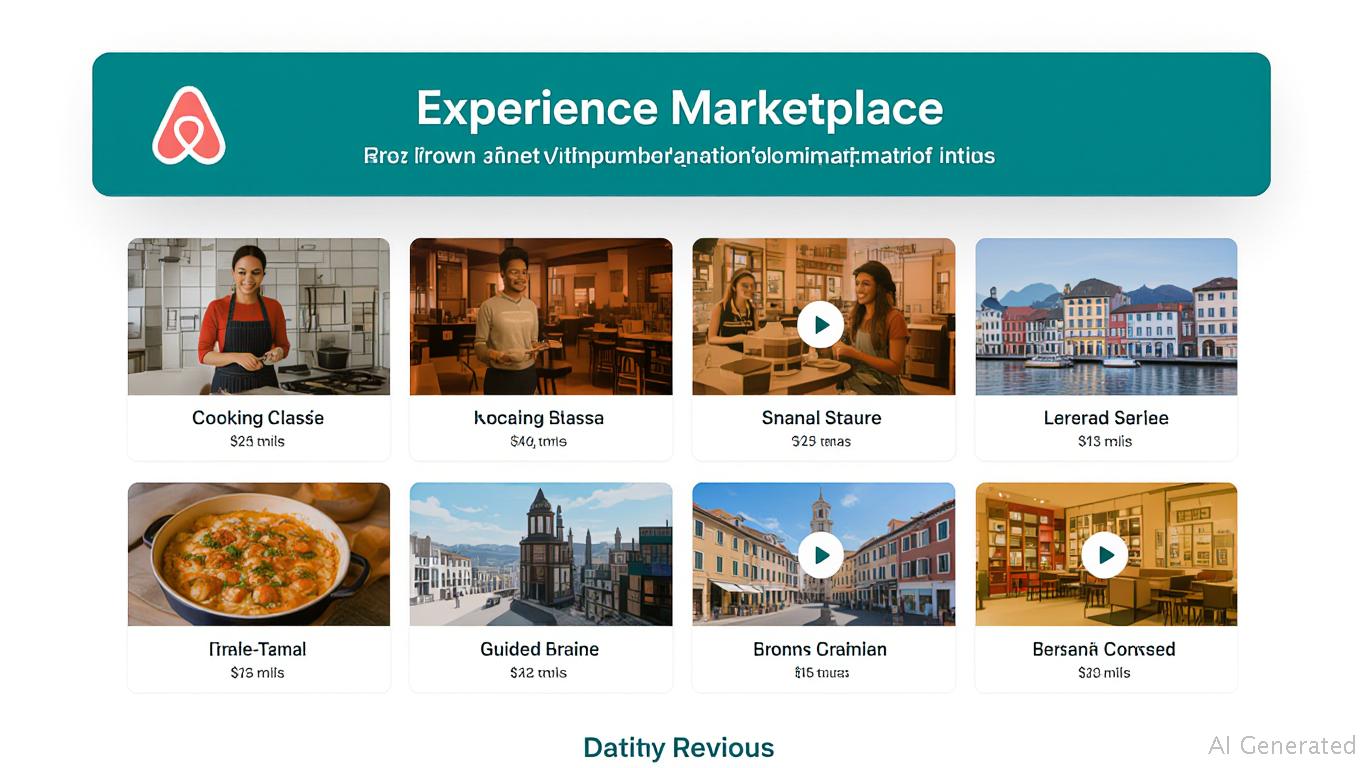Airbnb’s Q1 2025 revenue growth slowed to 6% year-over-year, underscoring a deceleration from its 17.8% peak in Q1 2024. Yet, the company is betting its future on a bold strategic shift: expanding beyond accommodations into local services such as chef meals, personal training, and curated experiences. While this pivot aims to tap into adjacent markets like the $247 billion global salon services sector, execution risks loom large. The question for investors is whether Airbnb’s diversification can justify its current valuation—or if the company is overextending in a maturing lodging market.
Market Potential: A $1.2 Trillion Opportunity in Local Services
Airbnb’s core business—short-term rentals—generated $11.1 billion in revenue in 2024. But the company now seeks to monetize the broader “local lifestyle economy,” a space encompassing everything from wellness services to event coordination. Analysts estimate the global market for on-demand local services (e.g., home cleaning, personal training, travel experiences) could exceed $1.2 trillion by 2027.

The $247 billion global salon services market alone presents a compelling target. By connecting users to local professionals via its platform, Airbnb could replicate its success in lodging by leveraging its 650 million users and trust-based ecosystem. Similarly, its “Summer Release” initiative in 2025—highlighting personalized experiences—hints at a strategy to monetize underpenetrated verticals like fitness, culinary, and beauty.
Key Drivers:
1. Network Effects: Airbnb’s existing user base can cross-sell services, reducing acquisition costs.
2. Data Advantage: Host and traveler data enable hyper-personalized service recommendations.
3. Brand Credibility: Trust in Airbnb’s platform lowers barriers to trying new local services.
Execution Risks: A Tightrope Between Diversification and Core Growth
While the opportunity is vast, Airbnb faces significant hurdles in executing this shift.
1. Slowing Core Growth
Q1 2025’s 6% revenue growth marks a sharp slowdown from 17.8% in Q1 2024. Analysts attribute this to macroeconomic pressures (e.g., Canadian travelers scaling back U.S. bookings) and rising competition. If lodging growth stagnates further, diverting resources to new services could strain margins.
2. High Costs and Regulatory Headwinds
- R&D and Marketing: The $200–$250 million annual investment in new ventures may pressure free cash flow, which fell to $458 million in Q4 2024 (18% margin).
- Regulation: Cities like Barcelona and New York have limited short-term rentals, forcing Airbnb to focus on markets with looser rules. Extending into services like wellness may attract new regulatory scrutiny.
3. Intense Competition
- Local Services: Rival platforms like Uber’s UberEats and ClassPass dominate niche markets.
- Lodging: Booking.com and VRBO now account for 20% of Airbnb’s lost market share, per internal data.
4. Margin Pressures
Expanding into service-based revenue (which typically carries lower margins than lodging fees) could dilute Airbnb’s 36% adjusted EBITDA margin. For instance, a personal training booking might generate 10–15% margins versus 30% on a high-margin luxury rental.
Analysis: A High-Reward, High-Risk Gamble
Airbnb’s pivot is a classic “grow or die” move. The company must:
1. Maintain Lodging Momentum: Q1’s 8% growth in nights booked and 7% rise in gross booking value suggest resilience, but sustained growth hinges on US-bound travel recovery.
2. Scale Services Profitably: Success in verticals like beauty or fitness requires partnerships with local professionals and robust fraud/quality controls—no small feat.
3. Leverage Data Monetization: AI-driven personalization could boost both lodging and service bookings, but execution here is critical.
Investment Thesis
Bull Case: If Airbnb captures even 5% of the $1.2 trillion local services market, it could add $60 billion in annual revenue—nearly doubling its current top line. Strong execution could justify its current $45 billion market cap and 34x P/E ratio.
Bear Case: Slower lodging growth + margin erosion from new services + regulatory setbacks could push Airbnb’s valuation closer to its 2023 low of $25 billion.
Conclusion: Wait for Proof of Concept
Airbnb’s move into local services is visionary but unproven. Investors should prioritize:
– Core Metrics: Watch Q3 2025 gross booking value growth (targeted at 7–9%) and lodging nights booked trends.
– Service Adoption: Track the percentage of users booking non-lodging services by year-end 2025.
– Margin Resilience: Ensure FCF remains above $4 billion annually despite new investments.
Until Airbnb demonstrates it can grow both its core and new services without margin dilution, the stock remains a “hold.” A pullback below $100 per share (its 52-week low) could present a buying opportunity, but patience is warranted.
Final Call: Strategic pivot is necessary but high-risk. Buy cautiously at current levels—wait for execution proof.